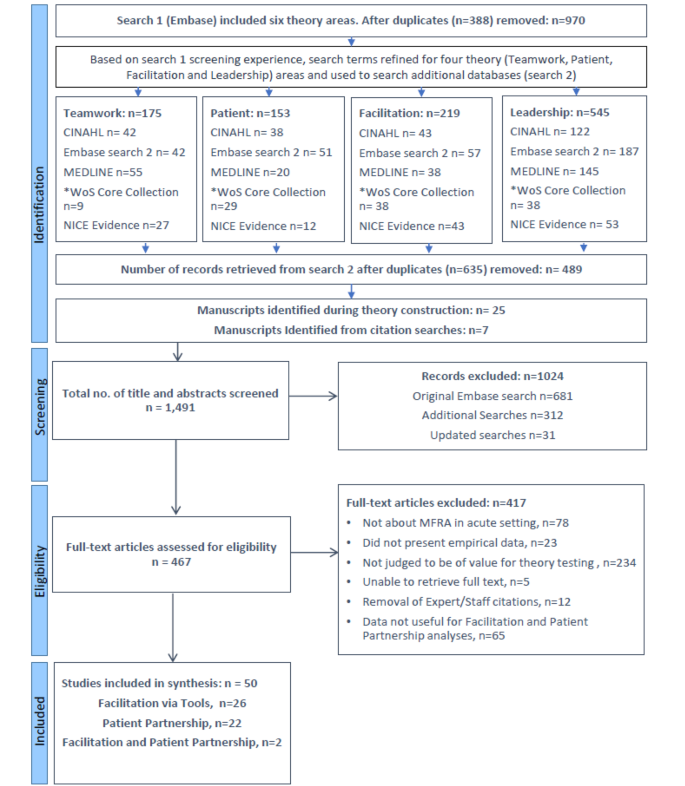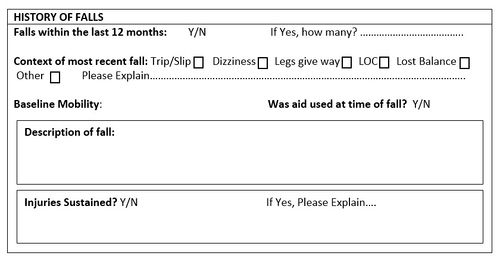Some Known Details About Dementia Fall Risk
Some Known Details About Dementia Fall Risk
Blog Article
Indicators on Dementia Fall Risk You Should Know
Table of ContentsGetting The Dementia Fall Risk To WorkThe Of Dementia Fall RiskA Biased View of Dementia Fall RiskThe Basic Principles Of Dementia Fall Risk The Greatest Guide To Dementia Fall Risk
Analyzing loss threat aids the entire medical care group establish a more secure atmosphere for every individual. Make sure that there is an assigned area in your clinical charting system where personnel can document/reference scores and document pertinent notes associated with fall avoidance. The Johns Hopkins Autumn Threat Assessment Tool is among lots of tools your staff can use to help stop damaging medical events.Client falls in health centers prevail and incapacitating adverse events that persist despite years of effort to lessen them. Improving communication throughout the examining registered nurse, treatment group, individual, and client's most entailed loved ones may strengthen fall avoidance initiatives. A group at Brigham and Women's Health center in Boston, Massachusetts, looked for to create a standard autumn prevention program that focused around improved communication and individual and household interaction.

The technology group highlighted that successful implementation relies on person and team buy-in, combination of the program into existing workflows, and fidelity to program procedures. The team noted that they are grappling with just how to make certain connection in program execution throughout durations of situation. Throughout the COVID-19 pandemic, for instance, a rise in inpatient falls was associated with restrictions in individual interaction together with limitations on visitation.
The Dementia Fall Risk Statements
These cases are commonly taken into consideration preventable. To execute the treatment, organizations require the following: Accessibility to Autumn suggestions sources Fall pointers training and retraining for nursing and non-nursing team, including new nurses Nursing operations that enable person and family involvement to conduct the drops assessment, ensure usage of the avoidance strategy, and carry out patient-level audits.
The outcomes can be highly harmful, commonly increasing client decline and triggering longer health center stays. One research study approximated stays enhanced an extra 12 in-patient days after a person fall. The Autumn TIPS Program is based upon interesting clients and their family/loved ones across 3 main processes: assessment, personalized preventative treatments, and bookkeeping to ensure that clients are participated in the three-step autumn prevention process.
The individual analysis is based upon the Morse Loss Range, which is a verified loss danger evaluation device for in-patient health center setups. The scale includes the 6 most common reasons clients in healthcare facilities drop: the person loss background, risky problems (consisting of polypharmacy), use IVs and various other external devices, mental status, gait, and movement.
Each danger factor relate to one or more actionable evidence-based treatments. The nurse develops a strategy that includes the treatments and is noticeable to the treatment team, client, and household on a laminated poster or published visual aid. Registered nurses create the strategy while consulting with the patient and the patient's household.
The Greatest Guide To Dementia Fall Risk
The poster works as a communication tool with other participants of the patient's care group. Dementia Fall Risk. The audit element of the program includes assessing the patient's knowledge of their danger factors and avoidance plan at the unit and health center levels. Nurse champs conduct at the very least 5 specific interviews a month with patients and their households to inspect for understanding of the fall avoidance browse around here strategy

A projected 30% of these drops outcome in injuries, which can range in severity. Unlike various other unfavorable occasions that need a standard scientific response, autumn avoidance depends extremely on the needs of the individual.
Little Known Questions About Dementia Fall Risk.

Based upon auditing outcomes, one website had 86% compliance and 2 sites had more than 95% compliance. A cost-benefit evaluation of the Loss pointers program in eight hospitals approximated that the program expense $0.88 per patient to apply and resulted in financial savings of $8,500 per 1000 patient-days in direct expenses associated to the avoidance of 567 falls over three years and 8 months.
According to the technology team, organizations curious about applying the program needs to conduct a preparedness assessment and falls avoidance voids analysis. 8 Furthermore, organizations need to guarantee the needed framework and workflows for implementation and establish an application strategy. If one exists, the company's Loss Avoidance Job Pressure need to be associated with preparation.
The 10-Second Trick For Dementia Fall Risk
To start, organizations ought to make sure conclusion of training modules by nurses and nursing assistants - Dementia Fall Risk. Hospital staff ought to examine, based upon the requirements of a healthcare facility, whether to make use of an electronic health record printout or paper version of the autumn avoidance strategy. Applying groups need to hire and educate registered nurse champions and establish processes for auditing and coverage on autumn information
Staff require to be involved in the process of upgrading the workflow to involve individuals and family in the analysis and avoidance strategy procedure. Equipment ought to remain in area to make sure that devices can recognize why a loss took place and remediate the reason. A lot more specifically, registered nurses ought to have channels to offer ongoing feedback to both team and device management so they can readjust and boost fall read what he said avoidance workflows and connect systemic troubles.
Report this page